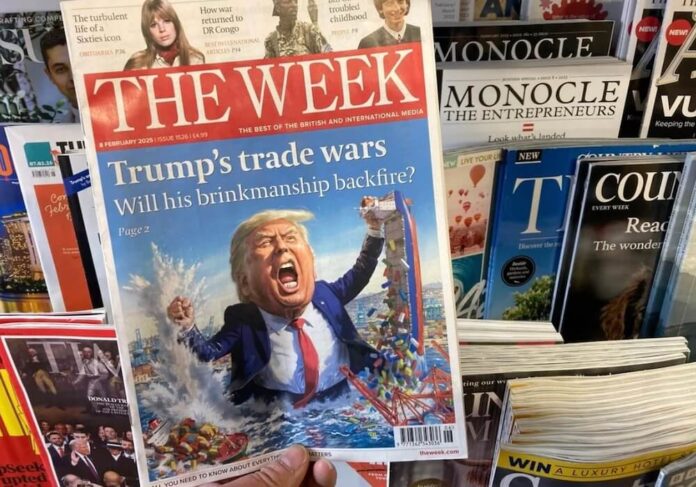Donald Trump caught global markets off guard by imposing aggressive new tariffs on key U.S. trade partners like China, Canada, and Mexico. Markets panicked, Bitcoin struggled, and investors moved to safety. But amidst the chaos lies a fascinating prospect: these tariffs may, ironically, chart a bullish path forward for crypto in the long term.
Short-Term Pain, Long-Term Gain
Initially, the blockchain space reacted exactly as expected—poorly. Bitcoin dropped sharply from around $88,000 to $83,000, while crypto stocks like Coinbase and Strategy saw immediate declines. Tariffs typically lead to higher costs, reduced economic growth, and increased market uncertainty. No surprise investors initially fled from risk assets, including crypto.
But let’s step back a bit. Could another force be at play?
Dollar Dominance Could Deteriorate
One unforeseen consequence of Trump’s tariffs might be a long-term erosion of the U.S. dollar’s global dominance. Zach Pandl, Grayscale’s Head of Research, recently stated that ongoing tariffs could undermine confidence in traditional fiat currencies. Investors seeking stable, predictable alternatives might increasingly turn to cryptocurrencies, particularly Bitcoin, which has consistently positioned itself as digital gold.
Bitcoin: The Inflation Hedge
Tariffs directly lead to higher consumer prices, fueling inflation. However, not all inflation is equal. Unlike healthy inflation driven by strong economic growth, tariff-driven inflation is generally harmful—raising prices without economic strength. Enter Bitcoin, a decentralized asset with a fixed supply ceiling. This scarcity makes it particularly appealing as an inflation hedge, potentially attracting investors seeking shelter from tariff-induced economic volatility.
Crypto’s Move into Mainstream Finance
Historically, financial volatility pushes investors toward safe-haven assets. But now, with the massive adoption of decentralized finance (DeFi), there’s a new safety net powered by blockchain. As tariffs escalate tensions and shake confidence in traditional financial institutions, investors may increasingly move into DeFi for transparency, increased stability, and autonomy. This shift could actually accelerate crypto’s next phase, from merely a speculative asset to a staple component of the financial system.
Yes, tariffs create initial uncertainty, but as we’ve repeatedly observed, short-term disruptions often mask long-term opportunities. Trump’s tariffs might inadvertently set off shifts that make crypto an essential financial tool in an ever-evolving economic landscape. Investors who look beyond present disruptions may find themselves rewarded in a blockchain-powered future.

